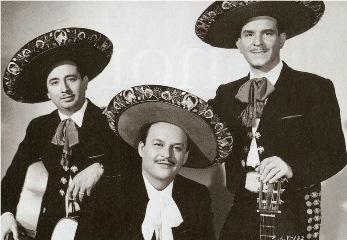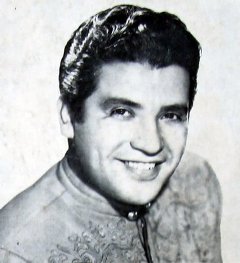Malagueña Salerosa
Malagueña Salerosa
The classic version of Malagueña is plaintive and romantic. A poor young man is in love with a beautiful girl from Malaga, Spain. He has nothing to offer by his heart, pure and good and his hands, willing to work. This delicate love song, whose roots lie in forms of social behavior which existed a thousand years ago, seems to call up subliminal memories and courtly instincts of a time centuries past, whenever it is played.
Malaguena Salerosa
The song is that of a man telling a woman how beautiful she is, and how he would love to be her man, but that he understands her rejecting him for being too poor. In Kill Bill a wild, rocking Americanized version (Chingon) so excited Tarantino that he developed a credit sequence based on it. Malagueña is an example of assimilation writ large.

Kill Bill poster
Malagueña Salerosa — described as a well-known Son Huasteco or Huapango song from Mexico, which has been covered more than 200 times.

Chingon
A Son Huasteco is one of several musical forms originating from northeastern Mexico. The son huasteco is typically performed by three musicians on violin and huapanguera and jarana guitars. The music has a vigorous and marked rhythmic sound and is often accompanied by social dancing.

Malaguena Salerosa
Malagueña Salerosa is attributed to Elpidio Ramírez and Pedro Galindo published by Peer International in 1947. However, as La Malagueña the song was featured in the soundtrack of the 1946 Mexican film Enamorada. It is performed during a dramatic sequence in the film by Trío Calaveras. The Trio had released the song in 2002.

Trio Calaveras
Mexican composer Nicandro Castillo questions the validity of that authorship. He said “…La Malagueña, which in reality, like La Guasanga or El Sacamandú, were known many years before, and should be part of the public domain. "

Malaguena Salerosa
The most famous version was made by Miguel Aceves Mejía with a mariachi band. Miguel Aceves Mejía who was also known as “The Golden Flasetto” was a great Mexican composer, singer and actor. Miguel Aceves was born in Ciudad Juarez in the state of Chihuahua on 15th November 1915. Aceves began recording for the first time in 1938 with the Trio “Los Porteños”, an interesting aspect is that he recorded more than 1000 songs including Bolero, Tango and Ranchera music.

Miguel Aceves Mejia
Malagueña Salerosa
Huasteca que linda eres Que bonitos ojos tienes, Debajo de esas dos cejas (X2) Que bonitos ojos tienes Ellos me quieren mirar, Pero si tu no los dejas, (X2) Ni siquiera parpadear Malagueña, salerosa, Besar tus, labios quisiera, (X2) Malagueña salerosa Y decirte, niña hermosa, que eres linda, y hechicera, (X2) como el candor de una rosa Si por pobre me desprecias Yo te concedo razón (X2) Si por pobre me desprecias Ingrata me traicionabas, Cuando de ti estaba ausente, (X2) De mi pasión te burlabas Malagueña, salerosa, Besar tus labios quisiera, (X2) malagueña salerosa Y decirte, niña hermosa, Que eres linda y hechicera, (X2) Como el candor, de una rosa (X2)

Malaguena Salerosa
Malagueña Salerosa, English version
Huasteca, you are beautiful What pretty eyes you have, Under those two eyebrows (X2) What pretty eyes you have They want to watch me, But if you do not leave it, (X2) Not even blink Malagueña salerosa, I like to kiss your lips (X2) malagueña salerosa And to tell you, beautiful girl, you are beautiful, and sorceress (X2) like the candor of a rose If you despise me for being poor I grant you reason (X2) If you despise me for being poor Ungrateful you betray me, When I was absent, (X2) You make fun of my passion Malagueña salerosa, I want to kiss your lips, (X2) malagueña salerosa And to tell you, beautiful girl, They're cute and sorceress (X2) Like the candor of a rose (x2)

Malaguena Salerosa








